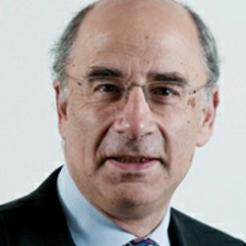The Carnegie UK Trust has voiced concerns that not enough charity representatives have submitted evidence to the Leveson Inquiry, saying the charity voice is key to securing a responsible press.
Analysing the submissions to evidence available on the Leveson Inquiry website the Trust found that out of 458 submissions, just 30 originated from the charity sector. This compares to over 60 from the legal profession and over 130 from those identifying themselves as journalists.
The Trust, a policy and best practice action group, said that this shows that charities are not engaging effectively with the enquiry and risk not having their voices heard in Lord Justice Leveson's final recommendations.
Bill Livingstone, trustee at the Carnegie UK Trust and former chairman of the Society of Editors (Scotland) said charities' engagement in the Inquiry is essential:
"The debate about the future of our media industry needs to hear from as many different groups as possible who have an interest in media ethics and the critical relationship between news media, civil society and a healthy democracy.
"The active engagement of charities and campaign groups, as well as other civil society stakeholders, is key to secure a sustainable balance between a free press and a responsible press," he said.
The Inquiry, which closes for written evidence on 15 July, will decide the fate of UK press freedoms and its ethical structure, looking at the relationships between the press and parties it deals with, including politicians and the police.
Amidst the backdrop of the Inquiry the Journalism Foundation was launched in December 2011 to promote ethical journalism throughout the world. It's editor, Arion McNicoll told civilsociety.co.uk that it "wholeheartedly supports the Carnegie Trust in its bid to ensure that the charity sector’s voice is heard as the Leveson Inquiry heads towards recommendations designed to secure a responsible and effective press", advising that the Foundation is presently in discussions about submitting its own evidence.
Charity submissions
Evidence submitted by charities so far includes a joint entry by the Wellcome Trust, Cancer Research UK and the Association of Medical Research Charities on the reporting of science by the press. They warned of a propensity towards 'scare stories' and those of 'hype and false hope':
"There have been a number of examples in which some (though not all) sections of the press have promoted scares about matters of public health which are notwell grounded in science. These have the potential to cause great damage. Such stories can seed public concern about medical interventions of proven and significant benefit over risks that are small or sometimes even illusory," they said.
"The flipside of the health scare is the overcooked breakthrough. Many newspapers (though not all of them) are apt to exaggerate interesting butpreliminary advances in biomedical science, proclaiming them as groundbreaking achievements that will transform individuals’ health when in fact they are reporting nothing more than promising results from experiments on mice, or cells grown in culture," the trio of charities warned.
Disaster Action also made a submission warning of the pressure placed on disaster survivors to be "good victims" and the pressure from being contacted by the press in times of trauma and subsequently for related news.










